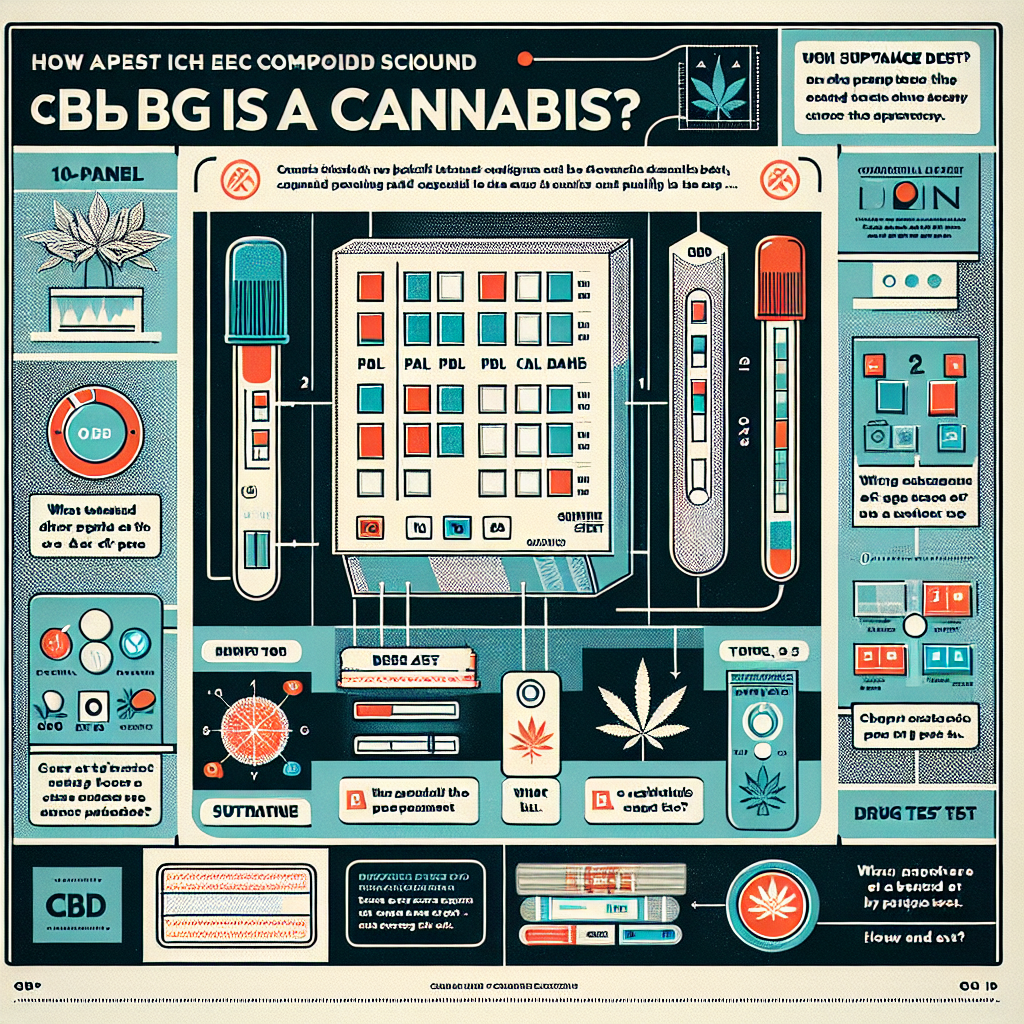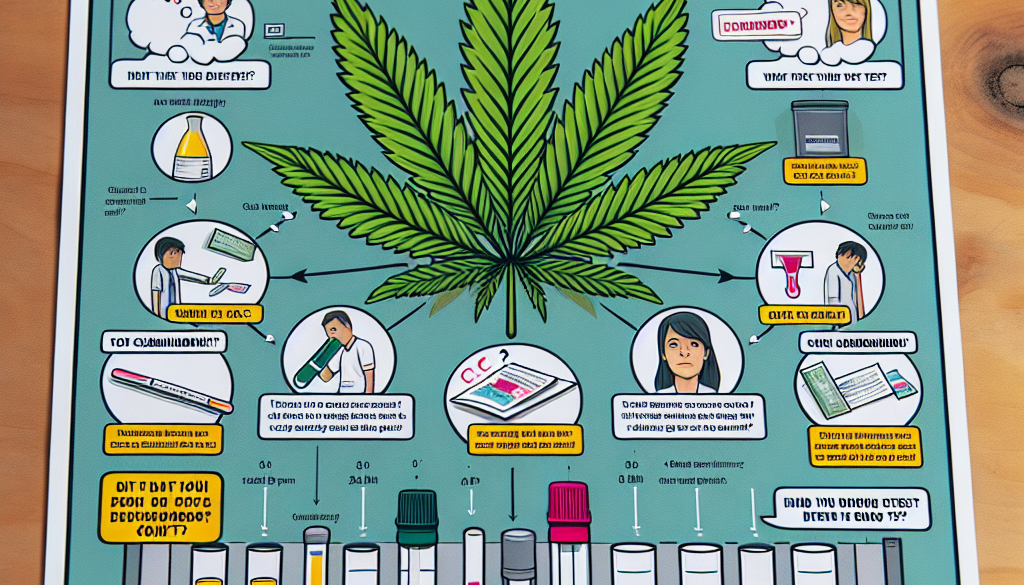Does CBG Show Up on a 10-Panel Drug Screen?
-
Table of Contents
- CBG and 10-Panel Drug Screens: What You Need to Know
- Understanding CBG and Drug Testing
- What is a 10-Panel Drug Screen?
- Does CBG Show Up on a 10-Panel Drug Screen?
- Factors That Could Influence Test Results
- Legal Considerations and Workplace Drug Testing
- Case Studies and Research
- Conclusion: Key Takeaways on CBG and Drug Testing
- Discover ETchem’s Protein Products
CBG and 10-Panel Drug Screens: What You Need to Know

As the popularity of cannabinoids continues to rise, questions about drug testing and the detectability of various compounds are becoming increasingly common. Cannabigerol (CBG) is a lesser-known cannabinoid that is gaining attention for its potential therapeutic benefits. However, many people are concerned about whether the use of CBG products could result in a positive drug test, particularly in a 10-panel drug screen. This article delves into the specifics of CBG and its interaction with drug testing protocols.
Understanding CBG and Drug Testing
Cannabigerol (CBG) is one of the many cannabinoids found in the cannabis plant. Unlike its more famous counterparts, THC (tetrahydrocannabinol) and CBD (cannabidiol), CBG is present in lower concentrations and is often referred to as the “mother of all cannabinoids” because other cannabinoids are derived from its acidic form, CBGA (cannabigerolic acid).
What is a 10-Panel Drug Screen?
A 10-panel drug screen is a common method used to detect the presence of various substances in an individual’s system. This type of test typically screens for the following substances:
- Marijuana (THC)
- Cocaine
- Amphetamines/Methamphetamines
- Opiates
- Phencyclidine (PCP)
- Barbiturates
- Benzodiazepines
- Methadone
- Propoxyphene
- Quaaludes
It’s important to note that while THC is included in this list, other cannabinoids like CBG are not typically targeted by standard drug tests.
Does CBG Show Up on a 10-Panel Drug Screen?
The short answer is no, CBG is not usually detected on a 10-panel drug screen. These tests are designed to detect specific substances and their metabolites, not all cannabinoids. Since CBG is a different compound from THC, it does not produce the same metabolites that drug tests are calibrated to detect.
Factors That Could Influence Test Results
However, there are factors that could potentially cause a person using CBG to test positive on a drug screen, including:
- Cross-Contamination: If CBG products are manufactured in facilities that also process THC-containing products, there could be cross-contamination.
- Product Mislabeling: Some products may claim to be pure CBG but could contain trace amounts of THC due to mislabeling or inadequate testing.
- Conversion to THC: In rare cases, CBG could potentially convert to THC in the body or during the extraction process, although this is not common.
For these reasons, it’s crucial for consumers to purchase CBG products from reputable sources that provide third-party lab testing results to ensure the product’s purity and THC content.
Legal Considerations and Workplace Drug Testing
While CBG itself may not be detectable on a drug test, the legal status of cannabinoids can vary by jurisdiction. In places where THC is illegal, even trace amounts found in CBG products could potentially lead to legal issues or positive drug test results.
Employers often use drug tests to ensure a drug-free workplace. Employees who are subject to drug testing should be aware of their employer’s policies regarding the use of cannabinoid products, including those containing CBG.
Case Studies and Research
There is limited research on CBG and its interaction with drug tests. However, anecdotal evidence and preliminary studies suggest that pure CBG should not cause a positive result on a 10-panel drug screen. More research is needed to fully understand how CBG is metabolized and whether it can interfere with drug testing in any way.
Conclusion: Key Takeaways on CBG and Drug Testing
In summary, CBG is not typically detected on a 10-panel drug screen, which is designed to identify THC and other specific substances. However, due to the potential for cross-contamination, product mislabeling, or conversion of CBG to THC, there is a small risk of a false positive. To minimize this risk, consumers should choose high-quality, lab-tested CBG products from reputable sources.
Discover ETchem’s Protein Products
If you’re interested in exploring the world of proteins and their benefits, ETchem offers a range of high-quality protein products. From marine to bovine collagen, ETchem’s offerings are perfect for various industries, including nutraceuticals, pharmaceuticals, and food and beverage. With a commitment to quality and customer satisfaction, ETchem is your go-to source for all your protein needs.
About ETChem:
ETChem, a reputable Chinese Collagen factory manufacturer and supplier, is renowned for producing, stocking, exporting, and delivering the highest quality collagens. They include marine collagen, fish collagen, bovine collagen, chicken collagen, type I collagen, type II collagen and type III collagen etc. Their offerings, characterized by a neutral taste, instant solubility attributes, cater to a diverse range of industries. They serve nutraceutical, pharmaceutical, cosmeceutical, veterinary, as well as food and beverage finished product distributors, traders, and manufacturers across Europe, USA, Canada, Australia, Thailand, Japan, Korea, Brazil, and Chile, among others.
ETChem specialization includes exporting and delivering tailor-made collagen powder and finished collagen nutritional supplements. Their extensive product range covers sectors like Food and Beverage, Sports Nutrition, Weight Management, Dietary Supplements, Health and Wellness Products, ensuring comprehensive solutions to meet all your protein needs.
As a trusted company by leading global food and beverage brands and Fortune 500 companies, ETChem reinforces China’s reputation in the global arena. For more information or to sample their products, please contact them and email karen(at)et-chem.com today.




